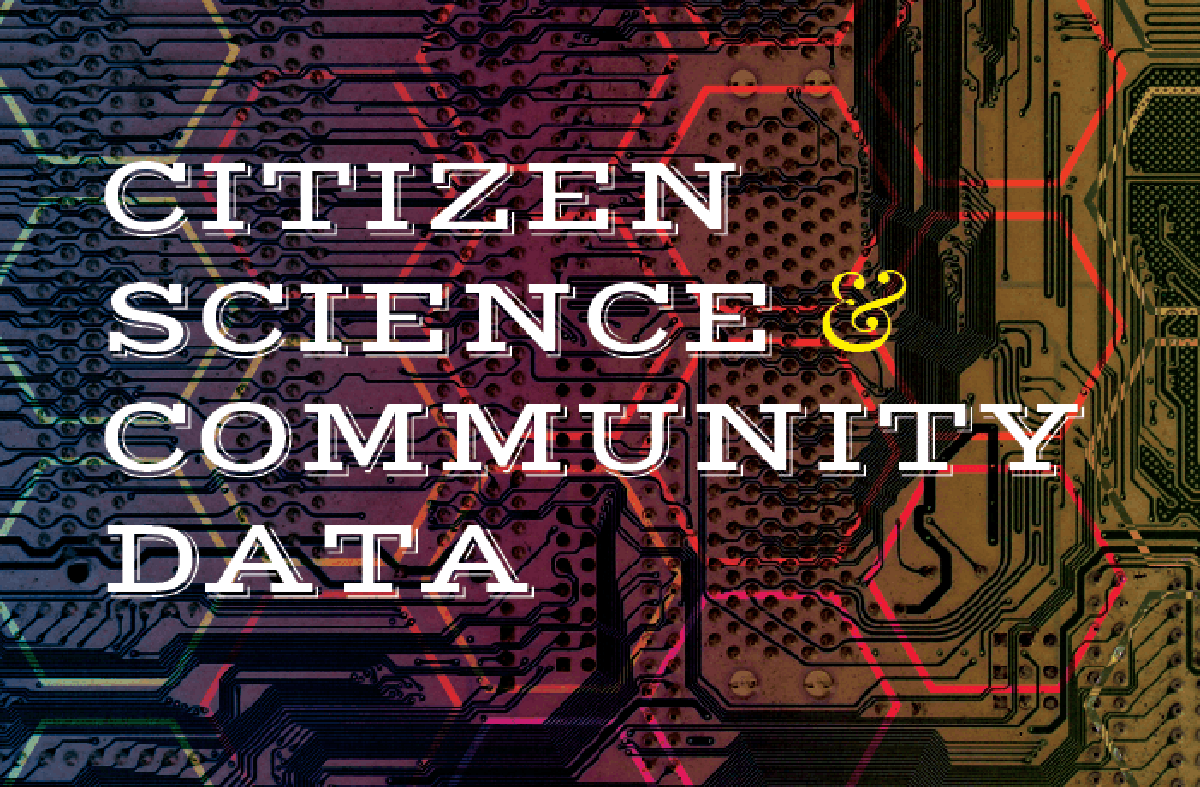
The Carnegie Mellon University Libraries invites you to join a panel of experts from around the University for a virtual discussion celebrating the impact of citizen science and community data in Pittsburgh and beyond. On Tuesday, January 31 at 6:30 p.m. EST, moderator Emma Slayton, the Libraries’ data curation, visualization, and geographic information system (GIS) specialist, will explore the exciting work of CMU leaders as they share their passion for community-focused projects, innovative approaches to engaging communities in collecting and utilizing their own data, and ideas on how those in academia can support community-led advocacy.
“As data users at Carnegie Mellon, we have so many skills at our fingertips that we leverage in a research environment — but how often are we thinking about the people behind the data sets we’re using?” Slayton said. “It’s our responsibility as citizens to really think about what the data is saying, and make sure we’re representing it truthfully. The panel will explore ways to re-center the communities behind the data, and look at how we can learn from them what issues are important and use data specifically to make their lives better.”
Each panelist brings their own unique experience using community data throughout every step of a project. Mickey McGlasson, a community data scientist at CMU’s Community Robotics, Education and Technology Empowerment (CREATE) Lab, will share his experience working directly with community partners to collect data for a variety of initiatives. He works in partnership with people and organizations across the Pittsburgh region to collect, analyze, and visualize data relating to air quality, affordable housing, and more.
From the University Libraries, Director of the Open Source Programs Office (OSPO) Sayeed Choudhury brings his expertise using open science to bridge the gap between academic institutions and community organizations. In his previous role at Johns Hopkins University, he worked with the St. Francis Neighborhood Center to promote more transparent data sharing between local communities and the university, and raise awareness about local health care.
“I believe that open data and open source software represent powerful pathways for building transparency and trust so that citizens and community members can share their stories using their own voices,” Choudhury said.
Finally, Alex Hiniker, director of Sustainability Initiatives at Carnegie Mellon, will share how she has guided communities from 18 different countries across the globe to understand how their data can be used to combat societal problems. She’ll explore how she now works with the CMU community to incorporate the Sustainable Development Goals into the university's education, research, and practices.
The event will explore innovative tools and approaches that anyone can use to engage with their own communities and groups of interest. Students and faculty will get an exciting glimpse of classroom lessons in action, and learn how the Libraries can be a great resource to build vital skills, and connect scholars to additional learning opportunities and a wide range of projects across campus and beyond.
For alumni looking to find meaningful ways to leverage their existing skills, Slayton hopes the panel will act as a point of galvanization. “Because of the CMU’s strong focus on data engagement, our alumni are some of the most well-appointed people to leverage how data storytelling can make an impact on a community,” she said. “We want this event to serve as a networking opportunity with others who have similar interests, and start a wider discussion about how we can all come together as a broader community to affect real change.”
Slayton hopes that members of the public, in addition to the CMU community, will be able to share their thoughts and insight on issues close to their heart with the panel. A question and answer session at the end will give audiences both near and far the opportunity to jump into the conversation.
“This is an opportunity for us to open the door, and to create a collaborative co-learning environment with local groups and individuals,” Slayton said. “Our goal is always to help communities in a way that is valuable to them. We want to better engage citizen scientists, and to help more people become citizen scientists. If you have information about how we can use data science to better center and promote community needs, we want to hear from you at this event.”
Following the panel, the Libraries will host a series of spring workshops, free of charge and open to the CMU community and the general public, geared toward using data to bring about social change. Look for more information in the coming weeks about sessions exploring qualitative data, data visualization, GIS mapping, and more.
“Citizen Science and Community Data: Inspiring Engagement between CMU and Local Communities” is free of charge and open to the general public. Register now to receive a link to attend.
by Sarah Bender, Communications Coordinator
